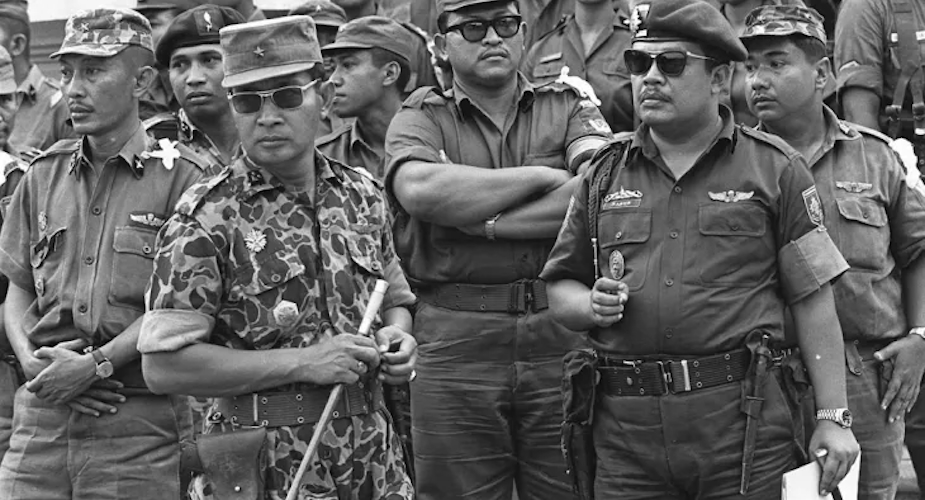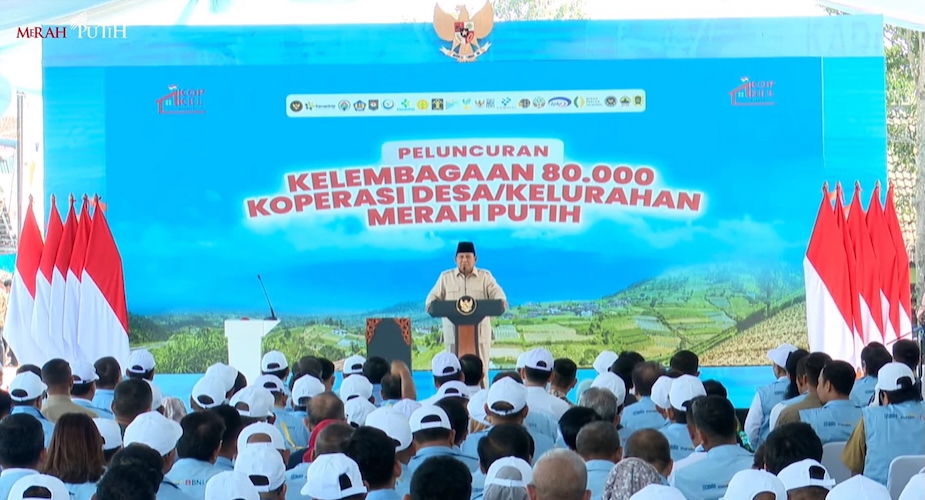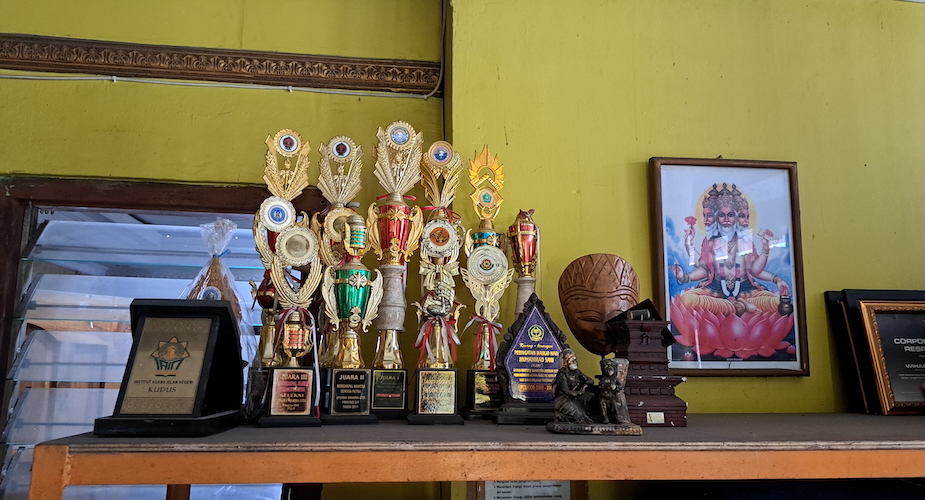Indonesia has met many of the Millennium Development Goal targets, but faces new development challenges as a middle-income country
Ben Davis and Thushara Dibley
Along with all other nation states, Indonesia signed up to the Millennium Development Goals (MDGs) in 2000. The MDGs are a global blueprint to galvanise efforts to reduce poverty. The eight goals, which were to be met in 2015, range from halving extreme poverty, providing universal primary education, to halting the spread of HIV and promoting gender equality. Indonesia in 2000 was a country that had just been savaged by the 1997-98 Asian Financial Crisis, undoing years of progress towards poverty reduction.
Since then, Indonesia has made great progress across a range of poverty indicators and experienced significant political, economic and social change. It may come as no surprise, then, that under Susilo Bambang Yudhyono’s (SBY) leadership, Indonesia was an enthusiastic supporter of the goals. In this edition of Inside Indonesia we examine the legacy of Indonesia’s commitment to the MDGs. Our contributors assess Indonesia’s progress against the MDGs, ask how relevant they have been, examine what lessons can be learned from their implementation, and look at what the development framework will look like for Indonesia into the future.
 The Millenium Development Goals are set to complete in 2015 - Rahulkepapa, Licensed under CC BY-SA 3.0 via Wikimedia Commons
The Millenium Development Goals are set to complete in 2015 - Rahulkepapa, Licensed under CC BY-SA 3.0 via Wikimedia Commons
The edition opens with a piece by Anindita Sitepu and Natasha Ardiani who provide an insider view of the challenges the SBY government faced implementing the MDGs. They argue that despite high-level support for the MDGs within the Indonesian government, there were many practical aspects of implementing the goals that stalled their progress. Sitepu and Ardiani emphasise that these practical obstacles need to be addressed to ensure the success of any future development programs that Indonesia undertakes.
The following five articles each focus specifically on a particular MDG theme. Vivi Alatas and Matthew Wai-Poi from the World Bank open the analysis with an assessment of the first goal: eradicating extreme poverty and hunger. Their article illustrates that while Indonesia met this target by halving its poverty level, problems of inequality, high vulnerability of the poor in Indonesia and the persistence of different kinds of poverty mean that the challenge is far from over for Indonesia.
Daniel Suryadarma assesses Indonesia’s progress against the second MDG, achieving universal primary education. Suryadarma argues that Indonesia has ‘overachieved’ on meeting this target, but like Alatas and Wai-Poi, believes that Indonesia still has considerable challenges to overcome to ensure continued progress in education. In particular, he argues that meeting the targets of the second goal have not addressed continued problems with the quality of education or providing adequate support to talented individuals.
Nani Zulminarni, the head of a non-government organisation (NGO) working on women’s empowerment discusses her view on the third goal—women’s empowerment—with Ben Davis and Thushara Dibley. She explains that while more young girls are going to school and legislation related to women’s empowerment in Indonesia has improved, its practical application remains limited. In her experience many women continue to be ‘invisible’, both to policy makers and to broader society, and as a result are marginalised and not taken seriously.
Michael Dibley and Meiwita Budiharsana analyse the fourth and fifth MDGs, which are about reducing child mortality and improving maternal health respectively. They show that Indonesia has been much better at meeting the targets for child mortality than improving maternal health, and suggest that persistent regional and economic inequalities in the delivery of health services have contributed to this difference.
Tessa Toumbourou analyses the seventh goal: ensuring environmental sustainability. Toumbourou argues that Indonesia has a long way to go in this area. While the SBY government, and recently the new Joko Widodo (Jokowi) administration, have made ambitious claims to being committed to environmental sustainability, Indonesia continues to have the world’s highest rates of deforestation. Toumbourou highlights the practical challenges the Indonesian government has faced issuing permits for deforestation and proposes that the private sector and local communities are more actively involved in forest management.
While the MDGs offered a comprehensive framework for tackling poverty, certain groups of people were omitted from this framework, including people with disabilities. In their article, Ekawati Liu and Lyla Brown illustrate how the lack of reliable data and research about people with disabilities in Indonesia meant that many of the programs associated with meeting the MDG targets overlooked the this section of the population. They warn that without this data, even if people with disabilities are actively targeted in future development targets, it will be difficult to develop appropriate programs.
The final two articles in the series look to the future. Dinna Wisnu and Frans Supiarso focus on Jokowi’s likely strategy for future development programs. They argue that Jokowi’s pragmatic leadership style is likely to shape the way he approaches future social welfare programs, but warn that without the proper backing of his party, this approach may not be in the best interests of Indonesia’s development agenda.
Petrarca Karetji rounds off the edition with an important piece that challenges the Indonesian government and international development community to tackle the really complex issues that are acting as barricades to Indonesia’s development. He argues that many of the MDG targets were easy wins for Indonesia, and that the real challenges lie ahead in improving access to information for citizens and accountability of local governments, increasing access to services for remote populations and a developing a more unified approach from both government and development agencies.
In making their assessment on Indonesia’s progress meeting the MDG targets, the contributors to this edition highlight both how Indonesia has achieved progress and where it has stalled, and more importantly, why the country has experienced such mixed results meeting these development targets. The articles highlight the structural, cultural, political and economic challenges that the country still faces. As the new administration considers its position with regards to the post-development agenda, which will be negotiated in the first six months of this year, Indonesia should not be complacent in its success. Instead, the lessons from the past 15 years should pave the way for addressing the new development challenges that Indonesia faces as a middle-income country.
Ben Davis (Benjamin.davis@sydney.edu.au) is the International Development Coordinator (Southeast Asia) at the University of Sydney.
Thushara Dibley (Thushara.dibley@sydney.edu.au) is the Deputy Director of the Sydney Southeast Asia Centre at the University of Sydney.












